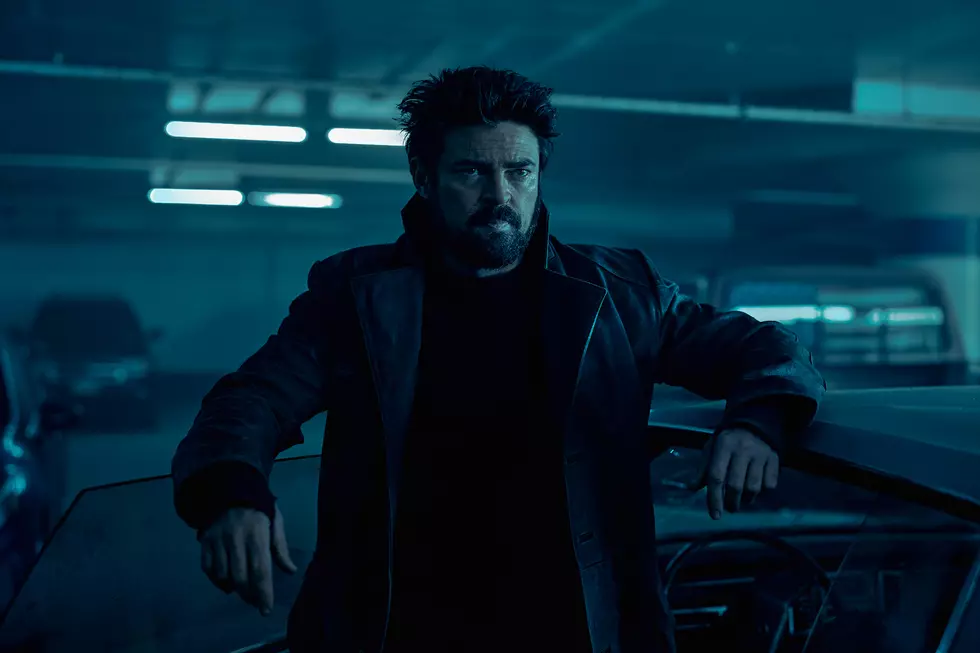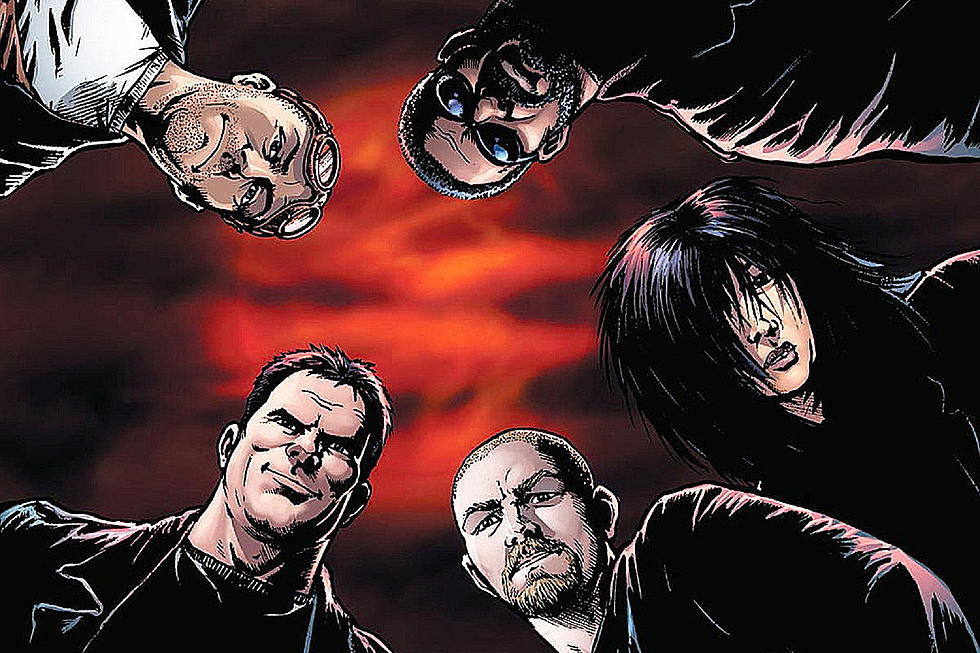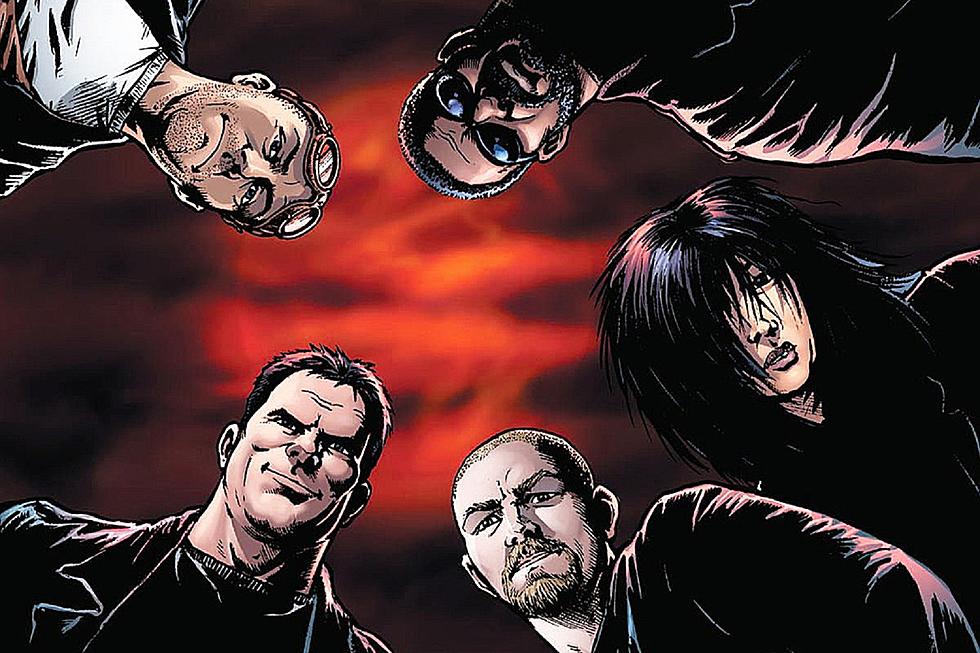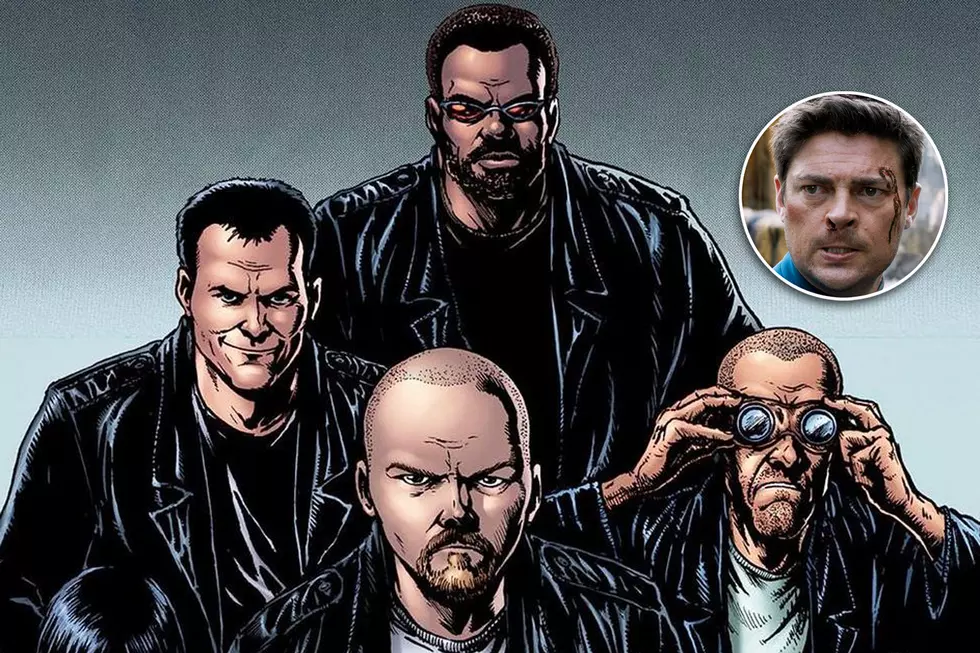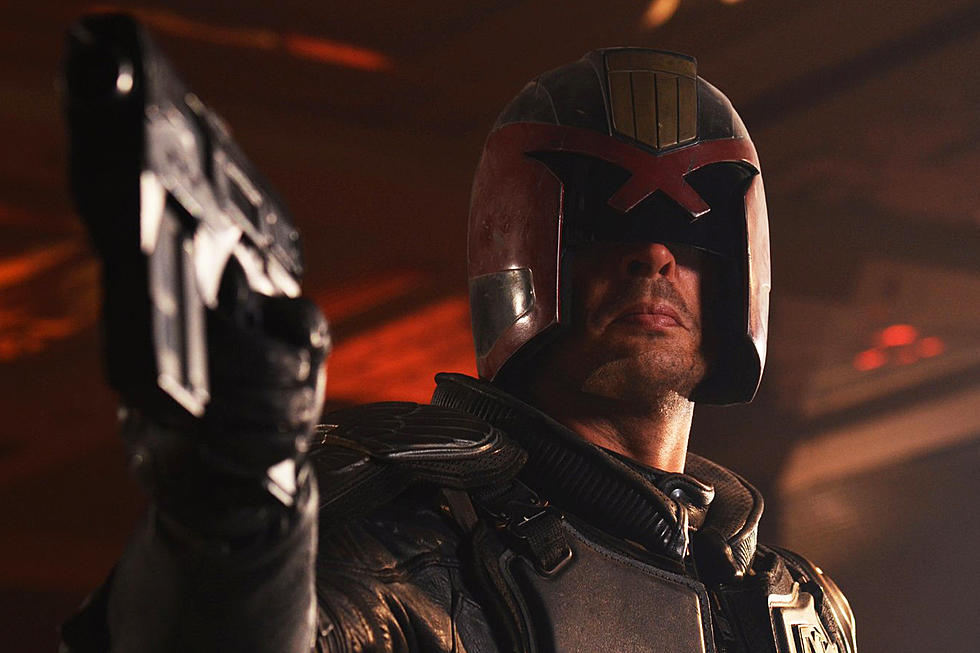
Karl Urban Interview: ‘Dredd 3D,’ Strong Female Characters and… ‘Dredd 2’?
'Dredd 3D' is hitting theaters today, and it's doing it with a bang. The film stars Karl Urban as Dredd, one of a force of "Judges" in a dystopian future society who act as judge, jury and executioner. Dredd teams up with a rookie on her first day, and the pair respond to a routine homicide investigation that ends up becoming an all-out war with a drug queen called Ma-Ma. We had a chance to talk to Mr. Urban about his role in the film, that crazy helmet and working with such strong female co-stars.
The film was announced a few years ago -- when did you become attached to play Judge Dredd?
Well, it was just at the point when I was doing press for 'Red' -- what was that? Two years ago now, I think. I was here in Austin. But yeah, it was actually at Comic-Con when I found out.
How did you get involved with the project, specifically?
My agent called me up and inquired would I be interested in Judge Dredd as a reboot that's being made, written by Alex Garland and produced by DNA. Judge Dredd was a comic book -- a character I was familiar with, having read it in my youth. So I said, "yes, please send me the script." I read the script and just found it to be, you know, compelling and character-driven, and action-packed, and at the heart of the story I guess I just responded to the relationship between Anderson [Olivia Thirlby] and Dredd -- effectively a senior cop and a rookie. And I liked how they didn't like each other much at the beginning, but in order to survive the ordeal of this day -- this one day -- they had to learn to trust each other and work together. And I just thought that was really, really interesting. So I signaled my interest from there and met up with Alex and Pete [Travis, the director], and we were all on the same page.
You mentioned that you were a fan of the comic book, and in the books Dredd is never seen without his helmet on. Knowing that as you went into it, were you excited to embrace that challenge as an actor?
Absolutely. I was up for it and I wouldn't have done it any other way. The challenge, really, was two-fold. It was not only the fact that I was denied the use of my eyes in communicating with the audience. But it was also the fact that Dredd, as a character, operates within a particularly narrow bandwidth. His archetype is essentially the man with no name, you know, that western hero -- walk slow, talk low, don't say much, emotions in check, so you're immediately kind of... the perceived dimensionality of the character is limited, but within that, there's so much going on.
And that was the challenge -- to humanize that character. To find those beats where his human comes through. Find the beats where he's weary, shows compassion, where his inner rage -- which he is struggling to contain -- where he fails to contain it. That's really interesting. Through the course of the relationship with Anderson, to see the evolution of the character who sees the world in terms of very black and white. You live, you die. You break the law, you don't. You pass, you fail. And to be presented with a situation where, on paper, says one thing, but he makes the opposite decision, and that I found intriguing. That really represents a tiny fracture in his world view. Suddenly there's this whole gray area. And I really liked that.
How did you decide how to use your face with only your mouth and chin showing? Were there different facial expressions you worked on?
No, I mean, a lot of people ask that, as well. I certainly didn't approach it like that because if I did it would essentially be me looking at myself pulling faces, and not the character of Dredd. I just read every Dredd comic that I could, and he's always drawn in a particular way and it's important that he be recognizably that character.
You mentioned not being able to use your eyes to communicate with the audience, but what was the visibility like with the helmet?
It was fine. It was a fully-functioning motorbike helmet. Dredd's uniform is a combat uniform, you know? And it's reflective and representative of a world gone mad, and one of the elements I really loved about this film is that there's a sadness to it, which I think is prevalent in all great sci-fi -- not that this is sci-fi, it's a bit more futuristic, but the decline of humanity, the fact that mankind is a seething, chaotic mess. The fact that law enforcement officials can only respond to 6% of crime.
I really liked the dystopian future of this film, and I'd love to see it explored further. Would you be willing to come back for a sequel if they asked?
Sure! I'd love to, but the reality is that this movie has a mountain to climb in order for that to happen. If that happens, then that'd be fantastic. I'd love to come back and continue the journey. If not, then I'm actually really okay with it because we've made a film that has left audiences wanting more, but in the enigmatic spirit of Dredd, what they're going to get is an instant one-off cult classic, that's also good.
The world is also much more fleshed-out here and just more interesting to be in than the Sylvester Stallone 'Judge Dredd.' And you guys really nail the tone here. I'd like to see another film that explores the process of how the Judges came to be.
One of the wonderful rewards of being involved with this movie was not only reconnecting with the stories that I read in my youth, but discovering the new stuff. And one of the stories that I discovered was called "Origins," and that is a Judge Dredd comic that really speaks about the whole evolution of the judges, how they came to be, the decline of democracy, and there's certainly a lot of stories out there I'd love to have the opportunity to explore.
Did you do your own stunts in 'Dredd'?
Yeah, I did a lot of them. There were some that were too dangerous, and in actual fact, one in particular -- the stunt double who was doubling Wood Harris ended up breaking his leg so badly that his bone came through his knee. You know, it's best to do as much as you can, but you have to know when to responsibly hand it over. If something were to happen to me, then that's a whole production -- there's like 300 people whose jobs and livelihood depend on whether I'm able to get up and do my job on a daily basis. You have to approach it with a responsibility.
And how was it working with Olivia Thirlby? You're both on screen together for the majority of the film, so you must have had to form a certain bond there.
I loved it. I really did. She's so cool. She's fun and smart, and we realized very early on that we're going to be in 90% of this movie together, so we formed a real partnership. We would meet up every day before we went on set and discuss the day's work, where our characters were in terms of how they felt about each other, and what beats we wanted to hit, and also her character was a way into my character. I think that's one of the major assets of this movie is the fact that we have two empowered women in this film, in the form of Lena Headey from 'Game of Thrones' and Olivia Thirlby. They are strong, kick-ass female role models, and it's not often you get two like that in a movie. And Lena -- her work is extraordinary. She's so left-field and so scary.
She's on a whole other level in this film.
Oh my god, yeah. I just find that every time I watch the film, she's just so compelling to watch. Her off-beat, off-kilter choices just fascinate me.
More From ScreenCrush
